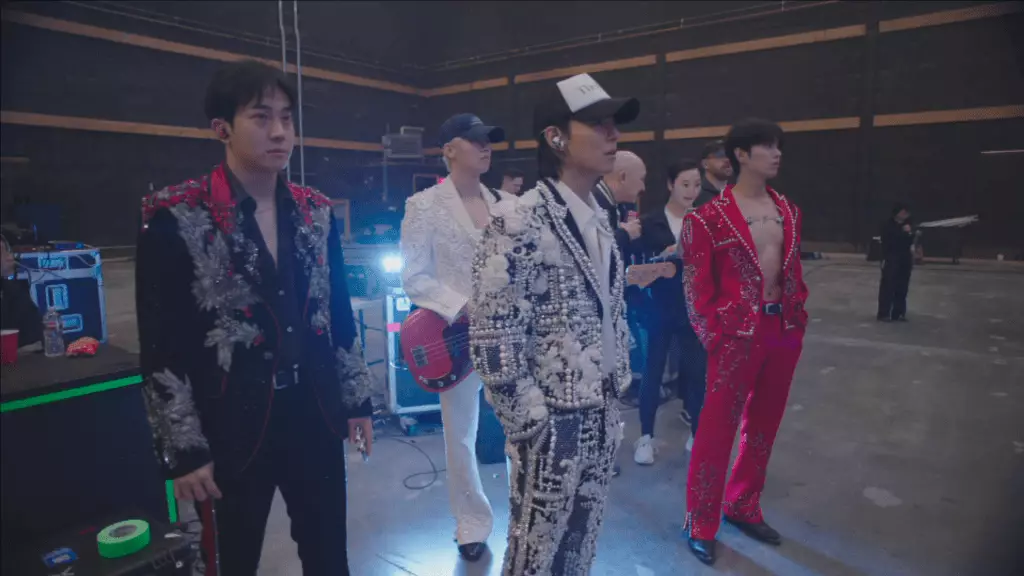In an era where cultural products are increasingly commodified, the story of The Rose, as portrayed in the documentary “Come Back to Me,” exemplifies how the industry packages raw emotion into marketable narratives. While the film claims to offer an intimate glimpse into the band’s creative soul and personal struggles, it ultimately serves as a commodity, curated and polished to appeal to global audiences eager for authentic yet digestible stories. The portrayal of their journey is sanitized, carefully constructed to evoke empathy while maintaining a commercial edge. This manipulation of genuine passion into a sellable narrative raises questions about what we genuinely connect with versus what we are encouraged to feel as consumers.
The Commercialization of Korean Cultural Surge: A Double-Edged Sword
CJ 4DPLEX’s involvement symbolizes the broader trend of Korean entertainment entities leveraging cultural capital for global dominance. The meteoric rise of K-pop, K-drama, and films like “Parasite” has created a fertile ground for Korean culture to influence the West. Yet, this cultural export also risks reducing complex stories into marketable packages aligned with Western tastes. While the documentary aims to showcase The Rose’s perseverance and artistry, it also fits neatly into a pipeline designed to capitalize on the Korean wave. This strategic commercialization raises an uncomfortable paradox: the more authentic the story appears, the more it may inadvertently reinforce the very stereotypes and expectations it claims to challenge.
The Band as Brand: From Artistic Integrity to Marketable Identity
The members of The Rose are presented as authentic artists, yet their image is carefully crafted within the context of a potent marketing strategy. Their bilingual performances cater to global audiences, but this bilingualism also functions as a tool for world-building that amplifies their marketability. This duality exposes a tension within the band’s identity—are they genuine musicians expressing heartfelt stories, or branded figures expertly positioned for international appeal? The documentary’s focus on behind-the-scenes stories and heartfelt interviews fosters a sense of intimacy, but it also subtly endorses the idea that authenticity is a product to be consumed. This commodification reduces their artistry to a relatable narrative, which ultimately benefits their marketing machine while possibly diluting the complexity of their true creative process.
The Industry’s Narrative Control and Audience Complicity
CJ 4DPLEX’s role as a technology innovator for immersive cinematic experiences underscores a broader industry trend: transforming storytelling into multisensory spectacles designed for maximum engagement—and profit. The use of formats like 4DX and SCREENX enhances viewer immersion but also serves as a distraction from critical engagement with the content’s deeper implications. Audiences are encouraged to experience the band’s emotional highs and lows not through critical reflection but through heightened sensory stimulation. This dynamic underscores a problematic trend: in the quest for immersive entertainment, the industry increasingly prioritizes spectacle over substance, nudging viewers toward passive appreciation of commodified authenticity rather than active, critical understanding.
The story of The Rose, as presented by its producers and orchestrators, exemplifies how modern narratives—especially within the global entertainment complex—are carefully curated socioeconomic constructs. While it’s easy to be swept away by the band’s inspiring journey, it is crucial to scrutinize what lies beneath the surface of this well-crafted spectacle. Is it genuine artistry, or a carefully curated myth designed to serve industry interests and international markets? The answer is complex, but one thing is clear: in a world obsessed with stories of finding oneself and overcoming adversity, the line between authenticity and manufactured narrative grows increasingly blurred. The industry’s push for globalized, immersive entertainment often comes at the expense of genuine voices and critical cultural reflection, leaving audiences enthralled yet ultimately disoriented in a landscape of crafted truths.


Leave a Reply